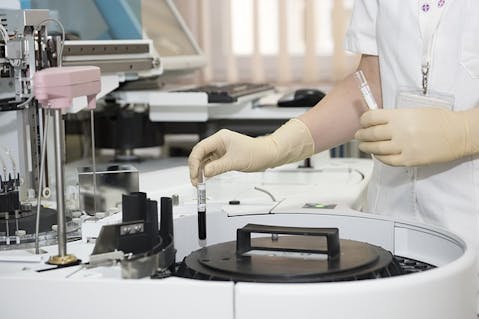Dennis Purcell’s Aisling Capital trimmed its position in Roka Bioscience Inc. (NASDAQ:ROKA) by 246,049 shares in July. The hedge fund disclosed holding 876,368 shares, which represent 4.9% of the company’s outstanding common stock, through a recently-amended 13G filing with the Securities and Exchange Commission. Aisling Capital held 1.12 million shares as of March 31 according to its most recent 13F filing.

Aisling Capital is a New York-based healthcare-focused hedge fund founded by Dennis Purcell. Aisling Capital, one of the top venture capital firms in the life sciences industry, has roughly $1.7 billion of assets under management and has invested in more than 75 companies since its inception in 2000. Dennis Purcell acted as the Senior Managing Director of the firm from February 2000 to December 2014, and currently serves as the Senior Advisor to Aisling Capital. Purcell is seen as a leader in the healthcare and life sciences field, being listed on Forbes’ all-stars in the biotechnology industry. Throughout his career, Purcell has served on the Board of Directors of multiple public and private companies that operate in the healthcare industry, so he has a notable career in healthcare finance and investing. According to its most recent 13F filing with the SEC, Purcell’s Aisling Capital manages a public equity portfolio worth $764.16 million, with 93% of its entire portfolio invested in the healthcare sector.
Follow Dennis Purcell's Aisling Capital
First a quick word on why we track hedge fund activity. In 2014, equity hedge funds returned just 1.4%. In 2013, that figure was 11.3%, and in 2012, they returned just 4.8%. These are embarrassingly low figures compared to the S&P 500 ETF (SPY)’s 13.5% gain in 2014, 32.3% gain in 2013, and 16% gain in 2012. Does this mean that hedge fund managers are dumber than a bucket of rocks when it comes to picking stocks? The answer is definitely no. Our small-cap hedge fund strategy, which identifies the best small-cap stock picks of the best hedge fund managers returned 28.2% in 2014, 53.2% in 2013, and 33.3% in 2012, outperforming the market each year (it’s outperforming it so far in 2015 too). What’s the reason for this discrepancy you may ask? The reason is simple: size. Hedge funds have gotten so large, they have to allocate the majority of their money into large-cap liquid stocks that are more efficiently priced. They are like mutual funds now. Consider Ray Dalio’s Bridgewater Associates, the largest in the industry with about $165 billion in AUM. It can’t allocate too much money into a small-cap stock as merely obtaining 2% exposure would really move the price. In fact, Dalio can’t even obtain 2% exposure to many small-cap stocks, even if he essentially owned the entire company, as they’re simply too small (or rather, his fund is too big). This is where we come in. Our research has shown that it is actually hedge funds’ small-cap picks that are their best performing ones and we have consistently identified the best picks of the best managers, returning 139.7% since the launch of our small-cap strategy compared to less than 59% for the S&P 500 (see the details).
Roka Bioscience Inc. (NASDAQ:ROKA) is a molecular diagnostics company focused on providing advanced testing solutions for the food safety testing market. The shares of Roka Bioscience have dropped by nearly 22% since the beginning of the current year and by over 71% since the company had its initial public offering in July of 2014. Roka Bioscience has been among the worst IPO performers of 2014 and we’ll attempt to tell you why the stock plummeted so as to get a clear picture of the company’s future outlook.